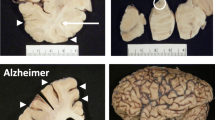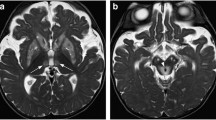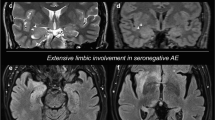Abstract
The choroid plexus is an epithelial–endothelial vascular convolute within the ventricular system of the vertebrate brain. It consists of epithelial cells, fenestrated blood vessels, and the stroma, dependent on various physiological or pathological conditions, which may contain fibroblasts, mast cells, macrophages, granulocytes or other infiltrates, and a rich extracellular matrix. The choroid plexus is mainly involved in the production of cerebrospinal fluid (CSF) by using the free access to the blood compartment of the leaky vessels. In order to separate blood and CSF compartments, choroid plexus epithelial cells and tanycytes of circumventricular organs constitute the blood–CSF–brain barrier. As non-neuronal cells in the brain and derived from neuroectoderm, choroid plexus epithelia are defined as a subtype of macroglia. The choroid plexus is involved in a variety of neurological disorders, including neurodegenerative, inflammatory, infectious, traumatic, neoplastic, and systemic diseases. Aβ and Biondi ring tangles accumulate in the Alzheimer’s disease choroid plexus. In multiple sclerosis, the choroid plexus could represent a site for lymphocyte entry in the CSF and brain, and for presentation of antigens. Recent studies have provided new diagnostic markers and potential molecular targets for choroid plexus papilloma and carcinoma, which represent the most common brain tumors in the first year of life. We here revive some of the classical studies and review recent insight into the biology and pathology of the choroid plexus.








Similar content being viewed by others
References
Alldinger S, Wünschmann A, Baumgärtner W, Voss C, Kremmer E (1996) Up-regulation of major histocompatibility complex class II antigen expression in the central nervous system of dogs with spontaneous canine distemper virus encephalitis. Acta Neuropathol 92:273–280
Antequera D, Vargas T, Ugalde C et al (2009) Cytoplasmic gelsolin increases mitochondrial activity and reduces Abeta burden in a mouse model of Alzheimer’s disease. Neurobiol Dis 36:42–50
Badaut J, Lasbennes F, Magistretti PJ, Regli L (2002) Aquaporins in brain: distribution, physiology, and pathophysiology. J Cereb Blood Flow Metab 22:367–378
Banks WA, Niehoff ML, Adessi C, Soto C (2004) Passage of murine scrapie prion protein across the mouse vascular blood–brain barrier. Biochem Biophys Res Commun 318:125–130
Beschorner R, Panzasis G, Jeibmann A et al (2009) Expression of EAAT-1 distinguishes choroid plexus tumors from normal and reactive choroid plexus epithelium. Acta Neuropathol 117:667–675
Brightman MW, Reese TS (1969) Junctions between intimately apposed cell membranes in the vertebrate brain. J Cell Biol 40:648–677
Bronstein JM, Lallone RL, Seitz RS, Ellison GW, Myers LW (1999) A humoral response to oligodendrocyte-specific protein in MS. A potential molecular mimic. Neurology 53:154–161
Brown PD, Davies SL, Speake T, Millar ID (2004) Molecular mechanisms of cerebrospinal fluid production. Neuroscience 129:957–970
Bryant DM, Mostov KE (2008) From cells to organs: building polarized tissue. Nat Rev Mol Cell Biol 9:887–901
Bundgaard M, Abbott NJ (2008) All vertebrates started out with a glial blood–brain barrier 4–500 million years ago. Glia 56:699–708
Carro E, Trejo JL, Spuch C, Bohl D, Heard JM, Torres-Aleman I (2006) Blockade of the insulin-like growth factor I receptor in the choroid plexus originates Alzheimer’s-like neuropathology in rodents: new cues into the human disease? Neurobiol Aging 27:1618–1631
Catala M (1997) Carbonic anhydrase activity during development of the choroid plexus in the human fetus. Child Nerv Syst 13:364–368
Choi SH, Leight SN, Lee VM et al (2007) Accelerated Abeta deposition in APPswe/PS1deltaE9 mice with hemizygous deletions of TTR (transthyretin). J Neurosci 27:7006–7010
Crossgrove JS, Li GJ, Zheng W (2005) The choroid plexus removes beta-amyloid from brain cerebrospinal fluid. Exp Biol Med (Maywood) 230:771–776
Cserr HF, Bundgaard M (1984) Blood–brain interfaces in vertebrates: a comparative approach. Am J Physiol 246:R277–R288
Dang L, Fan X, Chaudhry A, Wang M, Gaiano N, Eberhart CG (2006) Notch3 signaling initiates choroid plexus tumor formation. Oncogene 25:487–491
Davson H, Segal MB (1970) The effects of some inhibitors and accelerators of sodium transport on the turnover of 22Na in the cerebrospinal fluid and the brain. J Physiol 209:131–153
Del Bigio MR (1995) The ependyma: A protective barrier between brain and cerebrospinal fluid. Glia 14:1–13
Dermietzel R, Meller K, Tetzlaff W, Waelsch M (1977) In vivo and in vitro formation of the junctional complex in choroid epithelium. A freeze-etching study. Cell Tissue Res 181:427–441
Dohrmann GJ (1970) Dark and light epithelial cells in the choroid plexus of mammals. J Ultrastruct Res 32:268–273
Dvorak AM, Feng D (2001) The vesiculo-vacuolar organelle (VVO): a new endothelial cell permeability organelle. J Histochem Cytochem 49:419–431
Dziegielewska KM, Ek J, Habgood MD, Saunders NR (2001) Development of the choroid plexus. Microsc Res Tech 52:5–20
Ehrlich P (1885) Das Sauerstoff-Bedürfnis des Organismus. Eine farbenanalytische Studie. Herschwald, Berlin, pp 69–72
Emerich DF, Borlongan CV (2009) Potential of choroid plexus epithelial cell grafts for neuroprotection in Huntington’s disease: what remains before considering clinical trials. Neurotox Res 15:205–211
Emerich DF, Skinner SJ, Borlongan CV, Vasconcellos AV, Thanos CG (2005) The choroid plexus in the rise, fall and repair of the brain. BioEssays 27:262–274
Engelhardt B, Wolburg-Buchholz K, Wolburg H (2001) Involvement of the choroid plexus in central nervous system inflammation. Microsc Res Tech 52:112–129
Ennis SR, Keep RF (2006) The effects of cerebral ischemia on the rat choroid plexus. J Cereb Blood Flow Metab 26:675–683
Esser S, Wolburg K, Wolburg H, Breier G, Kurzchalia T, Risau W (1998) Vascular endothelial growth factor induces endothelial fenestrations in vitro. J Cell Biol 140:947–959
Fournier JG, Adjou K, Grigoriev V, Deslys JP (2008) Ultrastructural evidence that ependymal cells are infected in experimental scrapie. Acta Neuropathol 115:643–650
Furuse M, Furuse K, Sasaki H, Tsukita S (2001) Conversion of zonulae occludentes from tight to leaky strand type by introducing claudin-2 into Madin-Darby Canince Kidney I cells. J Cell Biol 153:263–272
García-Lecea M, Kondrychyn I, Fong SH, Ye Z-R, Korzh V (2008) In vivo analysis of choroid plexus morphogenesis in zebrafish. PLoS ONE 3:e3090
Goldmann E (1913) Vitalfärbung am Zentralnervensystem. Abh Preuss Wissensch Phys Math 1:1–60
Goren O, Adorján I, Kálmán M (2006) Heterogenous occurrence of aquaporin-4 in the ependyma and in the circumventricular organs in rat and chicken. Anat Embryol 211:155–172
Gow A, Southwood CM, Li JS et al (1999) CNS myelin and Sertoli cell tight junction strands are absent in Osp/Claudin-11 null mice. Cell 99:649–659
Grab DJ, Kennedy PGE (2008) Traversal of human and animal trypanosomes across the blood–brain barrier. J Neurovirol 14:344–351
Hagiwara E, Nath J (2007) Choroid plexitis in a case of systemic nocardiosis. Emerg Radiol 14:337–343
Hakvoort A, Haselbach M, Wegener J, Hoheisel D, Galla H-J (1998) The polarity of choroid plexus epithelial cells in vitro is improved in serum-free medium. J Neurochem 71:1141–1150
Hanly A, Petito CK (1998) HLA-DR-positive dendritic cells of the normal human choroid plexus: a potential reservoir of HIV in the central nervous system. Hum Pathol 29:88–93
Haselbach M, Wegener J, Decker S, Engelbertz C, Galla HJ (2001) Porcine choroid plexus epithelial cells in culture: regulation of barrier properties and transport processes. Microsc Res Tech 52:137–152
Hasselblatt M, Böhm C, Tatenhorst L et al (2006) Identification of novel diagnostic markers for choroid plexus tumors: a microarray-based approach. Am J Surg Pathol 30:66–74
Hasselblatt M, Mertsch S, Koos B et al (2009) TWIST-1 is overexpressed in neoplastic choroid plexus epithelial cells and promotes proliferation and invasion. Cancer Res 69:2219–2223
Hasselblatt M, Mühlisch J, Wrede B et al (2009) Aberrant MGMT (O6-methylguanine-DNA methyltransferase) promoter methylation in choroid plexus tumors. J Neurooncol 91:151–155
Hatton JD, Ellisman MH (1982) The distribution of orthogonal arrays in the freeze-fractured rat median eminence. J Neurocytol 11:335–340
Hoffman WH, Casanova MF, Cudrici CD et al (2007) Neuroinflammatory response of the choroid plexus epithelium in fatal diabetic ketoacidosis. Exp Mol Pathol 83:65–72
Johanson C, McMillan P, Tavares R, Spangenberger A, Duncan J, Silverberg G, Stopa E (2004) Homeostatic capabilities of the choroid plexus epithelium in Alzheimer’s disease. Cerebrospinal Fluid Res 10(1):3
Johansson PA, Dziegielewska KM, Ek CJ et al (2005) Aquaporin-1 in the choroid plexuses of developing mammalian brain. Cell Tissue Res 322:353–364
Koos B, Paulsson J, Jarvius M et al (2009) Platelet-derived growth factor receptor expression and activation in choroid plexus tumors. Am J Pathol 175:1631–1637
Kozniewska E, Romaniuk K (2008) Vaspressin in vascular regulation and water homeostasis in the brain. J Physiol Pharmacol 59(Suppl 8):109–116
Leonhardt H (1980) Ependym und circumventriculäre Organe. In: Neuroglia I, Oksche A (eds) Handbuch der mikroskopischen Anatomie des Menschen, vol 4, part 10. Oksche A, Vollrath L (series eds). Springer, Berlin, pp 17–666
Li ZS, Dziegielewska KM, Saunders NR (1997) Transthyretin distribution in the developing choroid plexus of South American opossum, Monodelphis domestica. Cell Tissue Res 287:621–624
Liddelow SA, Dziegielewska KM, Ek CJ, Johansson PA, Potter AM, Saunders NR (2009) Cellular transfer of macromolecules across the developing choroid plexus on Monodelphis domestica. Eur J Neurosci 29:253–266
Liebeskind DS, Hurst RW (2004) Infarction of the choroid plexus. Am J Neuroradiol 25:289–290
Liebner S, Corada M, Bangsow T et al (2008) Wnt/β-catenin signaling controls development of the blood–brain barrier. J Cell Biol 183:409–417
Ling EA, Kaur C, Lu J (1998) Origin, nature, and some functional considerations of intraventricular macrophages, with special reference to the epiplexus cells. Microsc Res Tech 41:43–56
Lippoldt A, Jansson A, Kniesel U et al (2000) Phorbol ester induced changes in tight and adherens junctions in the choroid plexus epithelium and in the ependyma. Brain Res 854:197–206
Mack A, Neuhaus J, Wolburg H (1987) Relationship between orthogonal arrays of particles and tight junctions as demonstrated in cells of the ventricular wall of the rat brain. Cell Tissue Res 248:619–625
Maharaj ASR, Saint-Geniez M, Maldonado AE, D’Amore PA (2006) Vascular endothelial growth factor localization in the adult. Am J Pathol 168:639–648
Maharaj ASR, Walshe TE, Saint-Geniez M et al (2007) VEGF and TGF-β are required for the maintenance of the choroid plexus and ependyma. J Exp Med 205:491–501
Marques F, Sousa JC, Coppola G et al (2009) Kinetic profile of the transcriptome changes induced in the choroid plexus by peripheral inflammation. J Cereb Blood Flow Metab 29:921–932
Miklossy J, Kraftsik R, Pillevuit O, Lepori D, Genton C, Bosman FT (1998) Curly fiber and tangle-like inclusions in the ependyma and choroid plexus. A pathogenetic relationship with the cortical Alzheimer-type changes? J Neuropathol Exp Neurol 57:1202–1212
Misawa T, Arima K, Mizusawa H, Satoh J (2008) Close association of water channel AQP1 with amyloid-beta deposition in Alzheimer disease brains. Acta Neuropathol 116:247–260
Møllgård K, Balslev Y, Lauritzen B, Saunders NR (1987) Cell junctions and membranem specializations in the ventricular zone (germinal matrix) of the developing sheep brain: a CSF-brain barrier. J Neurocytol 16:433–444
Morita K, Sasaki H, Fujimoto K, Furuse M, Tsukita M (1999) Claudin-11/OSP-based tight junctions of myelin sheaths in brain and Sertoli cells in testis. J Cell Biol 145:579–588
Nathanson JA, Chun LL (1989) Immunological function of the blood-cerebrospinal fluid barrier. Proc Natl Acad Sci USA 86:1684–1688
Nasdala I, Wolburg-Buchholz K, Wolburg H et al (2002) A transmembrane tight junction protein selectively expressed on endothelial cells and platelets. J Biol Chem 277:16294–16303
Nico B, Mangieri D, Corsi P et al (2004) Vascular endothelial growth factor-A, vascular endothelial growth factor receptor-2 and angiopoietin-2 expression in the mouse choroid plexuses. Brain Res 1013:256–259
Nielsen S, Smith BL, Christensen EI, Agre P (1993) Distribution of the aquaporin CHIP in secretory and resorptive epithelia and capillary endothelia. Proc Natl Acad Sci USA 90:7275–7279
Nixon PF, Jordan L, Zimitat C, Rose SE, Zelaya F (2008) Choroid plexus dysfunction: the initial event in the pathogenesis of Wernicke’s encephalopathy and ethanol intoxication. Alcohol Clin Exp Res 32:1513–1523
Oshio K, Watanabe H, Song Y, Verkman AS, Manley GT (2005) Reduced cerebrospinal fluid production and intracranial pressure in mice lacking choroid plexus water channel aquaporin-1. FASEB J 19:76–78
Paulus W, Brandner S (2007) Choroid plexus tumors. In: Louis DN, Ohgaki H, Wiestler OD, Cavenee WK (eds) WHO Classification of Tumours of the Central Nervous System. IARC Press, Lyon, pp 82–85
Perez-Gracia E, Blanco R, Carmona M, Carro E, Ferrer I (2009) Oxidative stress damage and oxidative stress responses in the choroid plexus in Alzheimer’s disease. Acta Neuropathol 118:497–504
Polakis P (2007) The many ways of Wnt in cancer. Curr Opin Gen Dev 17:45–51
Praetorius J, Nielsen S (2006) Distribution of sodium transporters and aquaporin-1 in the human choroid plexus. Am J Physiol 291:C59–C67
Privat A (1977) The ependyma and subependymal layer of the young rat: a new contribution with freeze-fracture. Neuroscience 2:447–457
Quan N, Mhlanga JD, Whiteside MB, McCoy AN, Kristensson K, Herkenham M (1999) Chronic overexpression of proinflammatory cytokines and histopathology in the brains of rats infected with Trypanosoma brucei. J Comp Neurol 414:114–130
Reboldi A, Coisne C, Baumjohann D et al (2009) C-C chemokine receptor 6-regulated entry of TH-17 cells into the CNS through the choroid plexus is required for the initiation of EAE. Nat Immunol 10:514–523
Reichenbach A (1989) Attempt to classify glial cells by means of their process specialization using the rabbit retinal Müller cell as an example of cytotopographic specialization of glial cells. Glia 2:250–259
Reichenbach A, Wolburg H (2005) Astrocytes and ependymal glia. In: Ransom BR, Kettenmann H (eds) Neuroglial cells. Oxford University Press, Oxford, pp 19–35
Roberts WG, Palade GE (1995) Increased microvascular permeability and endothelial fenestration induced by vascular endothelial growth factor. J Cell Sci 108:2369–2379
Sandri C, Akert K, Bennett MV (1978) Junctional complexes and variations in gap junctions between spinal cord ependymal cells of a teleost. Sternarchus albifrons (Gymnotoidei). Brain Res 143:27–41
Saunders NR, Møllgård K (1984) Development of the blood–brain barrier. J Dev Physiol 6:45–57
Scott DE, Kozlowski GP, Sheridan MN (1974) Scanning electron microscopy in the ultrastructural analysis of the mammalian cerebral ventricular system. Int Rev Cytol 37:349–388
Schulz M, Engelhardt B (2005) The circumventricular organs participate in the neuropathogenesis of experimental autoimmune encephalomyelitis. Cerebrospinal Fluid Res 2:8. doi:10.1186/1743-8454-2-8
Schwartz RB, Feske SK, Polak JF et al (2000) Preeclampsia-eclampsia: clinical and neuroradiographic correlates and insights into the pathogenesis of hypertensive encephalopathy. Radiology 217:371–376
Segal MB (2000) The choroid plexuses and the barriers between the blood and the cerebrospinal fluid. Cell Mol Neurobiol 20:183–196
Senger DR, Galli SJ, Dvorak AM, Perruzzi CA, Harvey VS, Dvorak HF (1983) Tumor cells secrete a vascular permeability factor that promotes accumulation of ascites fluid. Science 219:983–985
Serot JM, Béné MC, Foliguet B, Faure GC (2000) Monocyte-derived IL-10 secreting dendritic cells in choroid plexus epithelium. J Neuroimmunol 105:115–119
Serot JM, Foliguet B, Béné MC, Faure GC (1997) Ultrastructural and immunohistological evidence for dendritic-like cells within human choroid plexus epithelium. Neuroreport 8:1995–1998
Speake T, Freeman LJ, Brown PD (2003) Expression of aquaporin 1 and aquaporin 4 water channels in rat choroid plexus. Biochim Biophys Acta 1609:80–86
Speake T, Whitwell C, Kajita H, Majid A, Brown PD (2001) Mechanisms of CSF secretion by the choroid plexus. Microsc Res Tech 52:49–59
Steffen BJ, Breier G, Butcher EC, Schulz M, Engelhardt E (1996) ICAM-1, VCAM-1, and MAdCAM-1 are expressed on choroid plexus epithelium but not endothelium and mediate binding of lymphocytes in vitro. Am J Pathol 148:1819–1838
Strauss O (2005) The retinal pigment epithelium in visual function. Physiol Rev 85:845–881
Strazielle N, Ghersi-Egea JF (2000) Choroid plexus in the central nervous system: biology and physiopathology. J Neuropathol Exp Neurol 59:561–574
Sturrock RR (1979) A morphological study of the development of the mouse choroid plexus. J Anat 129:777–793
Szmydynger-Chodobska J, Strazielle N, Zink BJ, Ghersi-Egea J-F, Chodobski A (2009) The role of the choroid plexus in neutrophil invasion after traumatic brain injury. J Cereb Blood Flow Metab 29:1503–1516
Tomm M, Koch A, Mertsch S et al (2009) Role of Wnt inhibitory factor-1 and Wnt/wingless signaling in choroid plexus tumors. Pediatr Blood Cancer 53:1152–1155
Van Deurs B, Koehler JK (1979) Tight junctions in the choroid plexus epithelium. A freeze-fracture study including complementary replicas. J Cell Biol 80:662–673
Vercellino M, Votta B, Condello C et al (2008) Involvement of the choroid plexus in multiple sclerosis autoimmune inflammation: a neuropathological study. J Neuroimmunol 199:133–141
Vorbrodt AW, Dobrogowska DH (2003) Molecular anatomy of intercellular junctions in brain endothelial and epithelial barriers: electron microscopist’s view. Brain Res Rev 42:221–242
Wen GY, Wisniewski HM, Kascsak RJ (1999) Biondi ring tangles in the choroid plexus of Alzheimer’s disease and normal aging brains: a quantitative study. Brain Res 832:40–46
Wodarz A, Näthke I (2007) Cell polarity in development and cancer. Nature Cell Biol 9:1016–1024
Wolburg H (1995) Orthogonal arrays of intramembranous particles. A review with special reference to astrocytes. J Brain Res 36:239–258
Wolburg H (2006) The endothelial frontier. In: Dermietzel R, Spray DC, Nedergaard M (eds) Blood–brain interfaces: from ontogeny to artificial barriers. Wiley, Weinheim, pp 77–107
Wolburg K, Gerhardt H, Schulz M, Wolburg H, Engelhardt B (1999) Ultrastructural localization of adhesion molecules in the healthy and inflamed choroid plexus of the mouse. Cell Tissue Res 296:259–269
Wolburg H, Lippoldt A (2002) Tight junctions of the blood–brain barrier: development, composition and regulation. Vasc Pharmacol 20:323–337
Wolburg H, Noell S, Wolburg-Buchholz K, Mack AF, Fallier-Becker P (2009) Agrin, aquaporin-4, and astrocyte polarity as an important feature of the blood–brain barrier. Neuroscientist 15:180–193
Wolburg H, Wolburg-Buchholz K, Liebner S, Engelhardt B (2001) Claudin-1, claudin-2 and claudin-11 are present in tight junctions of choroid plexus epithelium of the mouse. Neurosci Lett 307:77–80
Wolburg H, Wolburg-Buchholz K, Mack A, Reichenbach A (2009) Ependymal cells. In: Squire L (ed) The new encyclopedia of neuroscience. Academic Press, Oxford, pp 1133–1140
Yool AJ (2007) Aquaporins: multiple roles in the central nervous system. Neuroscientist 13:470–485
Zamora AJ, Thiesson D (1980) Tight junctions in the ependyma of the spinal cord of the urodele Pleurodeles waltlii. Anat Embryol 160:263–274
Zhou L, Ng T, Yuksel A, Wang B, Dwyer DE, Saksena NK (2008) Absence of HIV infection in the choroid plexus of two patients who died rapidly with HIV-associated dementia. AIDS Res Hum Retroviruses 24:839–843
Author information
Authors and Affiliations
Corresponding author
Rights and permissions
About this article
Cite this article
Wolburg, H., Paulus, W. Choroid plexus: biology and pathology. Acta Neuropathol 119, 75–88 (2010). https://doi.org/10.1007/s00401-009-0627-8
Received:
Revised:
Accepted:
Published:
Issue Date:
DOI: https://doi.org/10.1007/s00401-009-0627-8




